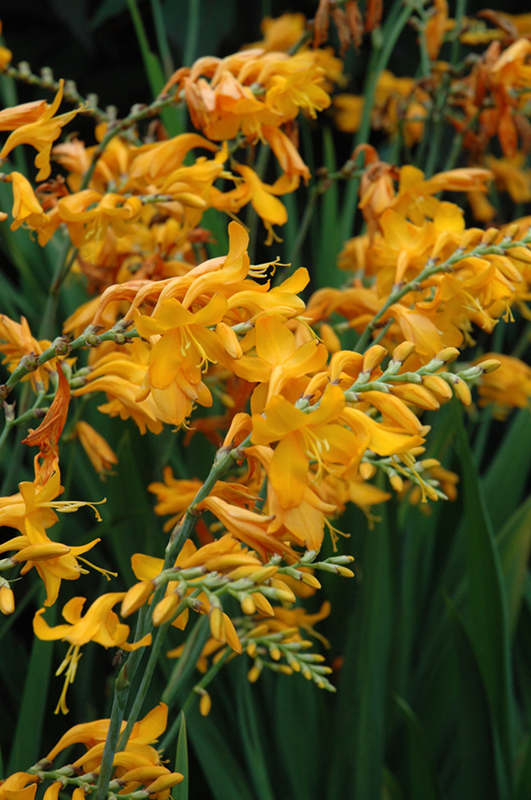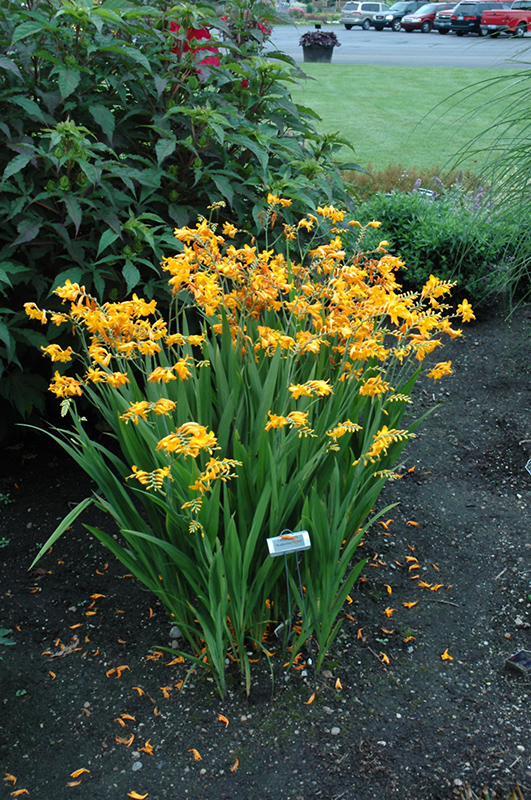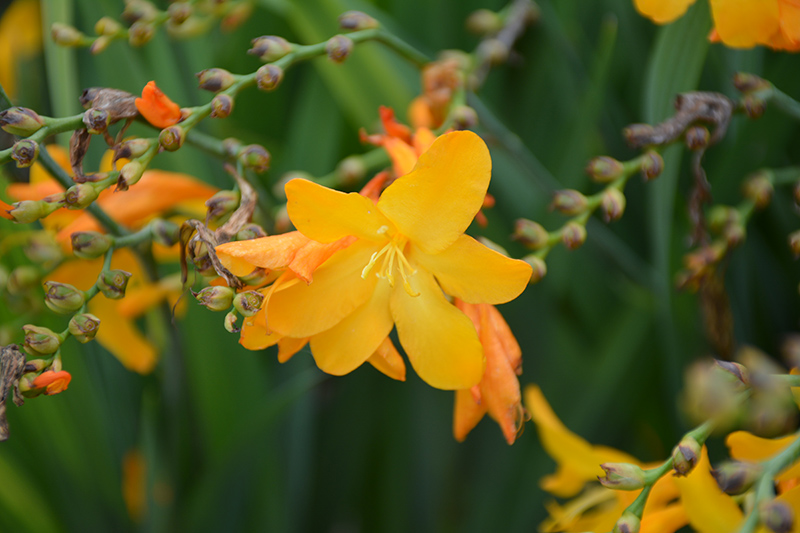Walberton Yellow Crocosmia Crocosmia 'Walcroy' Plant Height: 18 inches Flower Height: 24 inches Spacing: 10 inches
Sunlight:
Hardiness Zone: 5 Other Names: Montbretia Description: Breathtaking and bold yellow-gold flower scapes are one-sided and rise above iris-like foliage; attracts hummingbirds; best performance in full-sun; plant corms in spring if starting this plant yourself, can be lifted in fall Ornamental Features Walberton Yellow Crocosmia features showy nodding yellow trumpet-shaped flowers with gold overtones rising above the foliage from mid to late summer. The flowers are excellent for cutting. Its attractive textured sword-like leaves remain emerald green in color throughout the season. Landscape Attributes Walberton Yellow Crocosmia is an herbaceous perennial with an upright spreading habit of growth. Its medium texture blends into the garden, but can always be balanced by a couple of finer or coarser plants for an effective composition. This is a relatively low maintenance plant, and should be cut back in late fall in preparation for winter. It is a good choice for attracting bees, butterflies and hummingbirds to your yard, but is not particularly attractive to deer who tend to leave it alone in favor of tastier treats. It has no significant negative characteristics. Walberton Yellow Crocosmia is recommended for the following landscape applications; Planting & Growing Walberton Yellow Crocosmia will grow to be about 18 inches tall at maturity extending to 24 inches tall with the flowers, with a spread of 18 inches. When grown in masses or used as a bedding plant, individual plants should be spaced approximately 10 inches apart. Its foliage tends to remain dense right to the ground, not requiring facer plants in front. It grows at a medium rate, and under ideal conditions can be expected to live for approximately 10 years. As an herbaceous perennial, this plant will usually die back to the crown each winter, and will regrow from the base each spring. Be careful not to disturb the crown in late winter when it may not be readily seen! This plant does best in full sun to partial shade. It does best in average to evenly moist conditions, but will not tolerate standing water. It is not particular as to soil type or pH. It is somewhat tolerant of urban pollution. Consider applying a thick mulch around the root zone in winter to protect it in exposed locations or colder microclimates. This particular variety is an interspecific hybrid. It can be propagated by division; however, as a cultivated variety, be aware that it may be subject to certain restrictions or prohibitions on propagation. Walberton Yellow Crocosmia is a fine choice for the garden, but it is also a good selection for planting in outdoor pots and containers. With its upright habit of growth, it is best suited for use as a 'thriller' in the 'spiller-thriller-filler' container combination; plant it near the center of the pot, surrounded by smaller plants and those that spill over the edges. Note that when growing plants in outdoor containers and baskets, they may require more frequent waterings than they would in the yard or garden.![]()
![]()
![]()
![]()
![]()
![]()
![]()
![]()
![]()
![]()
![]()
![]()
![]()
![]()
![]()
Plant Finder
Characteristics
Applications
Features & Attributes



